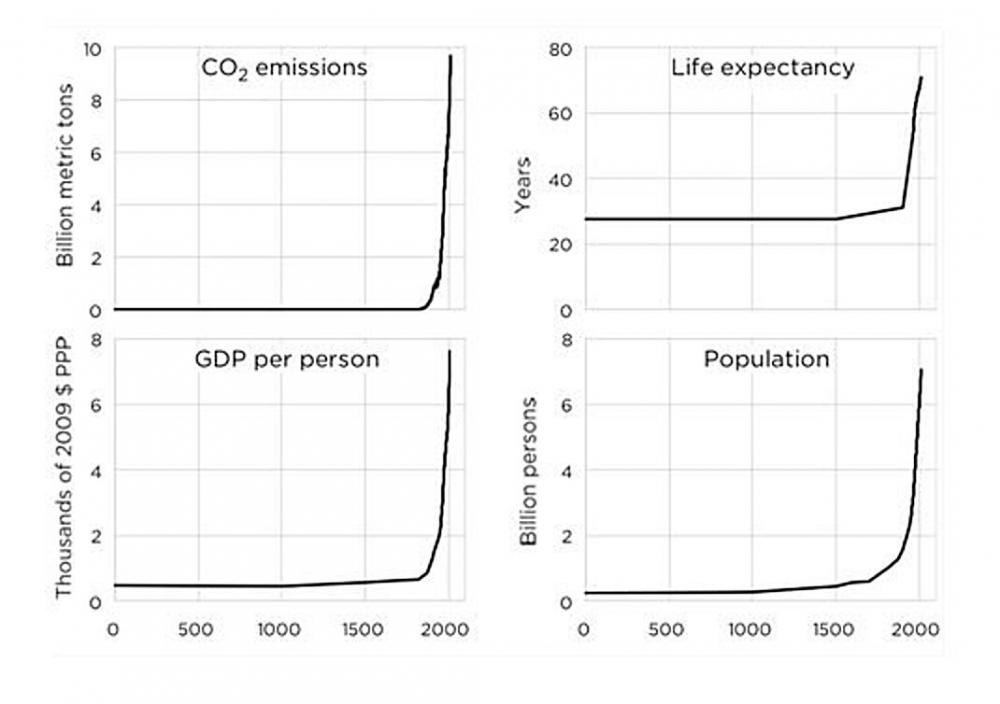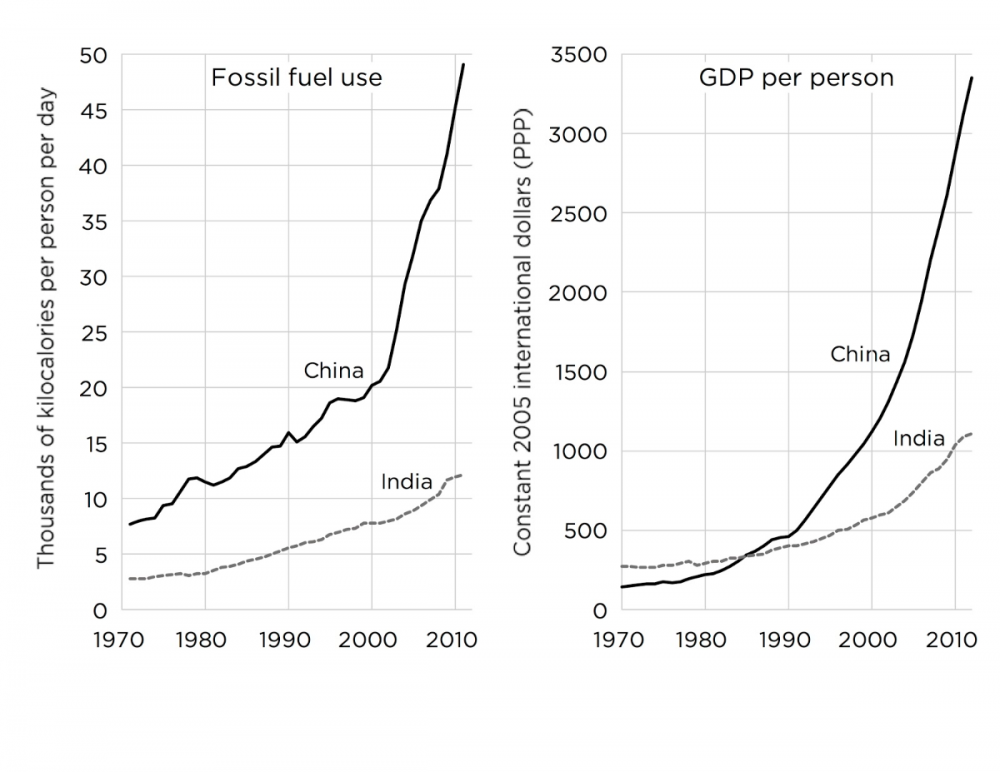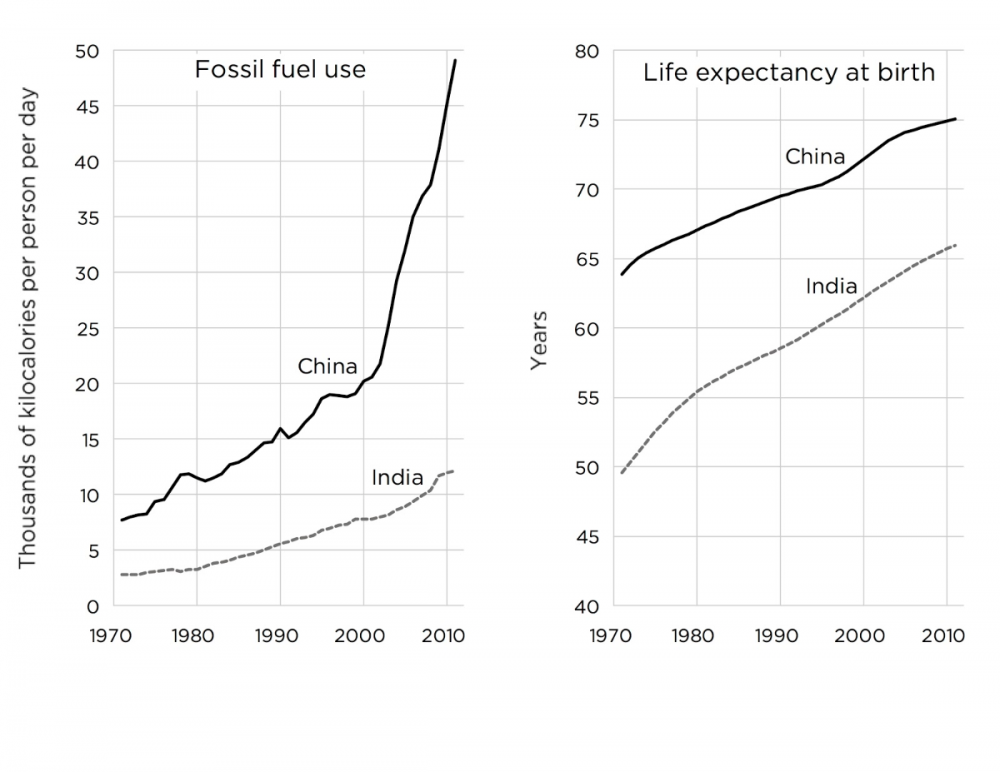Sent from my iPad
Begin forwarded message:
From: "Alex Epstein" <alex@industrialprogress.net>
Date: June 25, 2022 at 11:39:20 AM CDT
To: "Bobby Martin" <bobbygmartin1938@gmail.com>
Subject: Energy Clarity: Why is energy so valuable?
Preview
In this graph, we see a dramatic increase in CO2 emissions, which is a good measure of fossil fuel use because when we burn fossil fuels it adds CO2 to the atmosphere. There's also an incredible correlation between the rise of fossil fuel use and an increase in life expectancy, gross domestic product, and population.
Why such an increase? What was happening around this time? History tells us that this was around the time of the Industrial Revolution, a time of systematic productivity increases. What made this revolution and productivity possible is a combination of powerful machines and new energy sources to power those machines.
We went from producing everything by hand to using high-powered machines to produce things—and as a result, our capacity to do work greatly increased and every industry became more productive, including agriculture, manufacturing, and transportation. We were able to do far more with energy and technology than we ever could do on our own. All because of energy, which I often like to call "machine calories."
Machine calories
Every human runs off of calories. Those calories are our energy, our ability to act. If we run out of calories, we can't act. The same is true for the machines we use to improve our lives. Without machine calories, they don't function. And we desperately need machines to do work for us. Without machines, we don't have anywhere near the power and energy that we need to survive and flourish.
For example, in agriculture, we developed new machines that enabled us to produce so much more than we could produce without machines. In the U.S., we shifted from about 90% of the population producing our food to around only 2% doing it. Think about what that means in terms of how much more the human population was able to achieve because they weren't devoted to the production of food. Today, if those machines didn't work, we wouldn't be able to feed the 7+ billion people in the world.
As you can see in these charts of China and India, there are very strong correlations between fossil fuel use and life expectancy, and also fossil fuel use and income because energy is the root of productivity.



